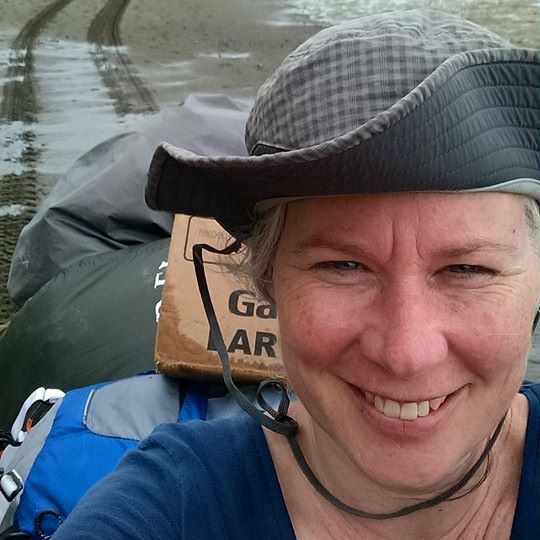People
My goal is to improve the management of wetlands and other natural resources in arid and semi-arid systems by examining how environmental stressors and landscape context influence wildlife populations and communities.
My research and that of my students focuses on how anthropogenic disturbance (good and bad) affects populations and communities of organisms and their relationships to habitat in the context of climate change. We also address objectives related to the assessment and management of vulnerable species, water sites, and other resources in a landscape context. My research group uses interdisciplinary approaches to address management driven research questions in arid and semi-arid regions. Additionally, I strongly believe that any research program is enhanced by including and mentoring students from diverse backgrounds who bring varied approaches and ideas to research. I genuinely enjoy working with both graduate students and undergraduates as they begin their scientific careers.
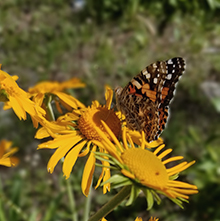 Kalin
Bayes
Kalin
Bayes
(MS student) Working on water quality and population structure in desert amphibians
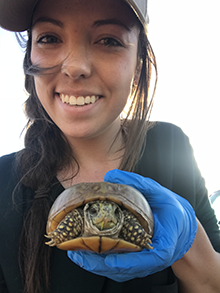 Amanda Emert
Amanda Emert
(MS student) I am investigating how agriculture affects playa habitat quality for amphibians in West Texas. The playa wetlands throughout the semi-arid Southern High Plains are essential for amphibians. Amphibians have complex life cycles in which the embryonic and larval stages require aquatic habitat. I will be investigating how buffers and distance from agricultural operations influences amphibian breeding as well as the hatching, growth, and development of tadpoles. I will be using and integrated approach, combining auditory and visual surveys, field caging experiments, and lab work to examine these relationships.
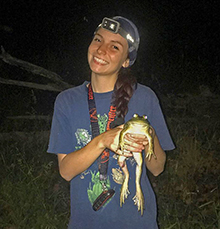 Sadie
Roth
Sadie
Roth
(PhD student) Landscape genetics of desert amphibians and their diseases
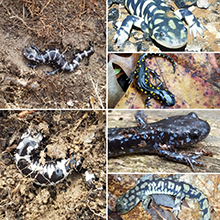 Sean
Sutor
Sean
Sutor
(PhD student) Sean is modeling risk from border activity to senstive natural and cultural resources. Sean is co-advised with Dr. Nancy McIntyre in Biology.
Undergraduate Lab Members
Madison McGinnis
Undergraduate intern - Sonoran Desert Tortoises
Past Graduate Students and Postdocs


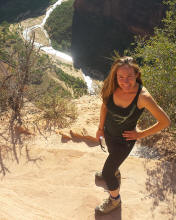
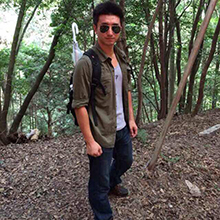
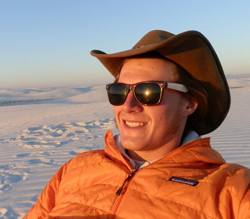
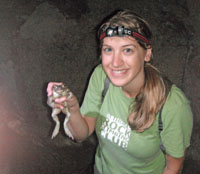
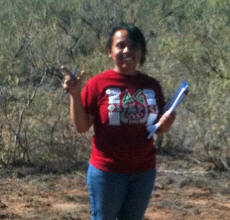
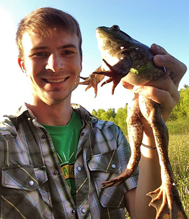
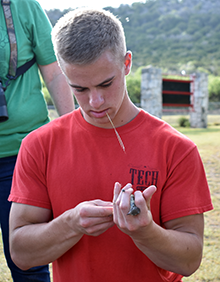
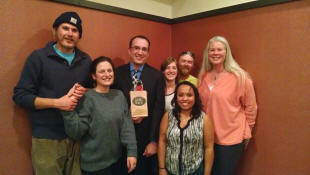
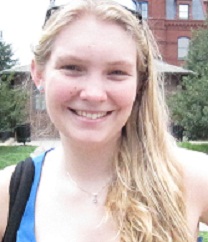
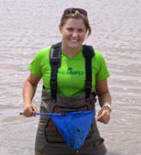
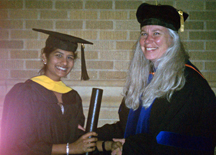
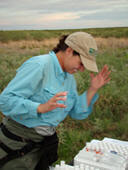
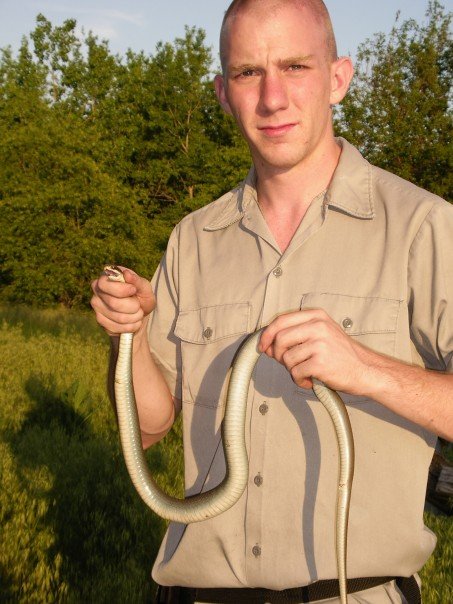
KR Vedolich MS 2020
Yingbo Zhang MS non-thesis 2020
Dr. Krista Mougey, Postdoc 2017 – Faculty at
Montana State University Billings. Deceased
Demi Gary MS 2017. Current position
– Orcas
Island Excursions
Joseph Drake MS 2016. Current position
– Working
on his PhD at the University of Massechusetts
Amherst
Masi Mejia MS 2016. Current position – East
Foundation
Dr. Matt Van Landeghem Post doc 2015-2016.
Current position – Nielson Company
Jordan Goetting MS 2015. Current position
– Mayo
Clinic
Kristin Stacy MS non-thesis 2015. Current
position – Texas Parks and Wildlife Department
Anja Kiesow MS in Aridland Studies 2015. Current
position – Claret.org
Jessica Kissner MS 2013. Current position
– Institute for Systems Biology
Rasika Ramesh MS 2012. Current position
– Working
on her PhD at Auburn University
Laura Navarrete MS 2011. Current position
– U.S. Forest Service in Oregon
John Uzzardo MS non-thesis 2010. Current position
– USGS
In memoriam
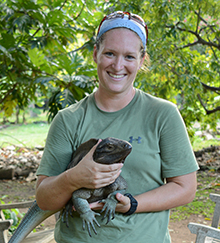 Dr.
Krista Mougey
Dr.
Krista Mougey
Dr. Mougey was faculty at Montana State University when she passed away unexectedly early in 2018. She is sincerely missed. To find out more about Krista, you can view her obituary.
Using conceptual sensitivity models and qualitative vulnerability analyses, I am studying the vulnerability of desert reptiles and amphibians to the impacts of climate change. Based on published life history, physiology, and habitat data, conceptual sensitivity models were developed for 25 herpetofaunal species considered common in US southwestern deserts. These conceptual models were combined with species occurrence and spatial climate data in NatureServe’s Climate Change Vulnerability Index system. For each of the 25 species, vulnerability was then evaluated across 3 geographic scales and 3 projected climate emission scenarios. I am synthesizing these data for model and scale comparisons, as well as for comparisons with vulnerability analyses performed by our collaborators, who are using mechanistic and classical species distribution modeling techniques to evaluate the same dataset. This research will serve an important role in informing more efficient herpetofauna conservation and management by identifying stressors likely to impact multiple species, highlighting areas with the greatest risk, and providing a standardized methodology and framework for future assessments.
Past Undergraduate Lab Members


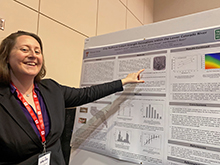
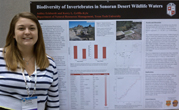

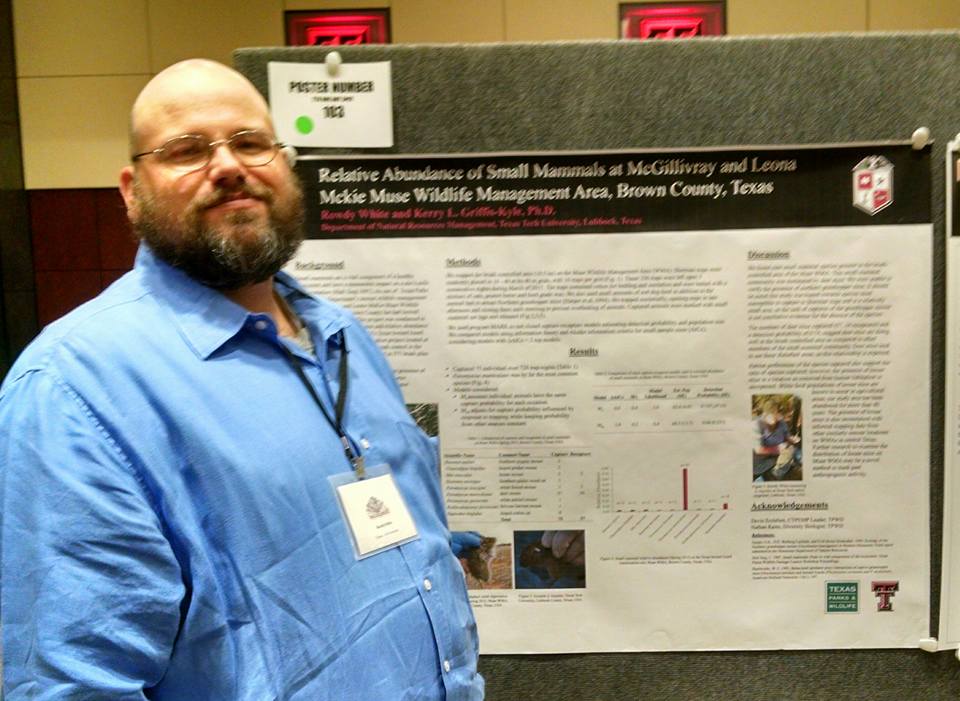
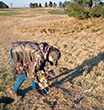


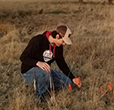

Brice Martin (2019) Monitoring vegetation impacts from lagomorphs
Caroline Jurca (2019) Vegetation response to burning on the Rawls Golf Course
Averyl Settler (2019) Avian response to Lesser Prairie Chicken conservation
Hagan Wright (2019) - Prescribed burn on the
Rawls Golf Course
Will Allen (2018) - Rabbit populations on the
Rawls Golf Course
Jake Doskocil (2018) - Wildlife habitat
monitoring and creation
Darby Johns (2018) – Animal use and habitat
assessment, Rawls Golf Course
Connor Steel (2018) – Wildlife monitoring, Rawls Golf Course
Jordi Wagner (2016) – Monitoring desert amphibian
communities using audiologgers.
Rowdy White (2015)
– Small mammals of the Hill
Country
Travis Rollins (2014) – Amphibians of the
southern Great Plains
Nancy Stewart (2013) – Amphibian calls in wildlife waters and mosquito ranges in eastern North America
Ashley Eckhart (2012) – Invertebrate
biodiversity in desert wildlife waters
Fowler Mitchell (2012) – The effects of
nitrogen on estuarine systems
Ben Baudouin (2011) – Invertebrates of Barry M
Goldwater Range - East
Mahogany Whitley (2010) – Invertebrates of Barry M
Goldwater Range - East
Kaitlyn Smith (2010) – Amphibian and
dragonfly use of desert wildlife waters
